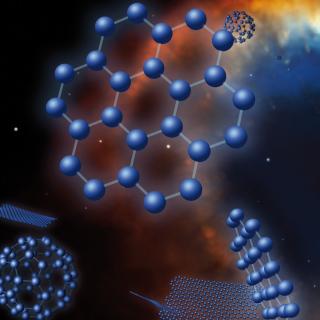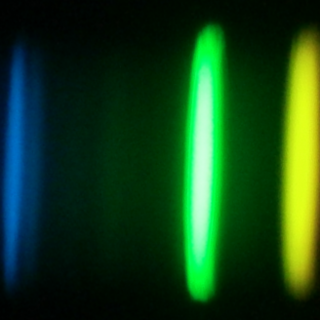McKemmish, Laura K.; Masseron, Thomas; Hoeijmakers, H. Jens; Pérez-Mesa, Víctor; Grimm, Simon L.; Yurchenko, Sergei N.; Tennyson, Jonathan
Bibliographical reference
Monthly Notices of the Royal Astronomical Society, Volume 488, Issue 2, p.2836-2854
Advertised on:
9
2019
Citations
205
Refereed citations
188
Description
Accurate line lists are crucial for correctly modelling a variety of
astrophysical phenomena, including stellar photospheres and the
atmospheres of extrasolar planets. This paper presents a new line
database TOTO for the main isotopologues of titanium oxide (TiO):
^{46}Ti^{16}O, ^{47}Ti^{16}O, ^{48}Ti^{16}O, ^{49}Ti^{16}O, and
^{50}Ti^{16}O. The ^{48}Ti^{16}O line list contains transitions with
wave-numbers up to 30 000 cm-1, i.e. longwards of 0.33 μm.
The TOTO line list includes all dipole-allowed transitions between 13
low-lying electronic states (X 3Δ,
a1Δ, d 1Σ+, E
3Π, A 3Φ, B3Π, C
3Δ, b 1Π, c1Φ,
f1Δ, e 1Σ+). Ab initio
potential energy curves (PECs) are computed at the icMRCI level and
combined with spin-orbit and other coupling curves. These PECs and
couplings are iteratively refined to match known empirical energy
levels. Accurate line intensities are generated using ab initio dipole
moment curves. The TOTO line lists are appropriate for temperatures
below 5000 K and contain 30 million transitions for ^{48}Ti^{16}O; it is
made available in electronic form via the CDS data centre and via
www.exomol.com. Tests of the line lists show greatly improved agreement
with observed spectra for objects such as M-dwarfs GJ876 and GL581.
Related projects

Nucleosynthesis and molecular processes in the late stages of Stellar Evolution
Low- to intermediate-mass (M < 8 solar masses, Ms) stars represent the majority of stars in the Cosmos. They finish their lives on the Asymptotic Giant Branch (AGB) - just before they form planetary nebulae (PNe) - where they experience complex nucleosynthetic and molecular processes. AGB stars are important contributors to the enrichment of the
Domingo Aníbal
García Hernández

Chemical Abundances in Stars
Stellar spectroscopy allows us to determine the properties and chemical compositions of stars. From this information for stars of different ages in the Milky Way, it is possible to reconstruct the chemical evolution of the Galaxy, as well as the origin of the elements heavier than boron, created mainly in stellar interiors. It is also possible to
Carlos
Allende Prieto